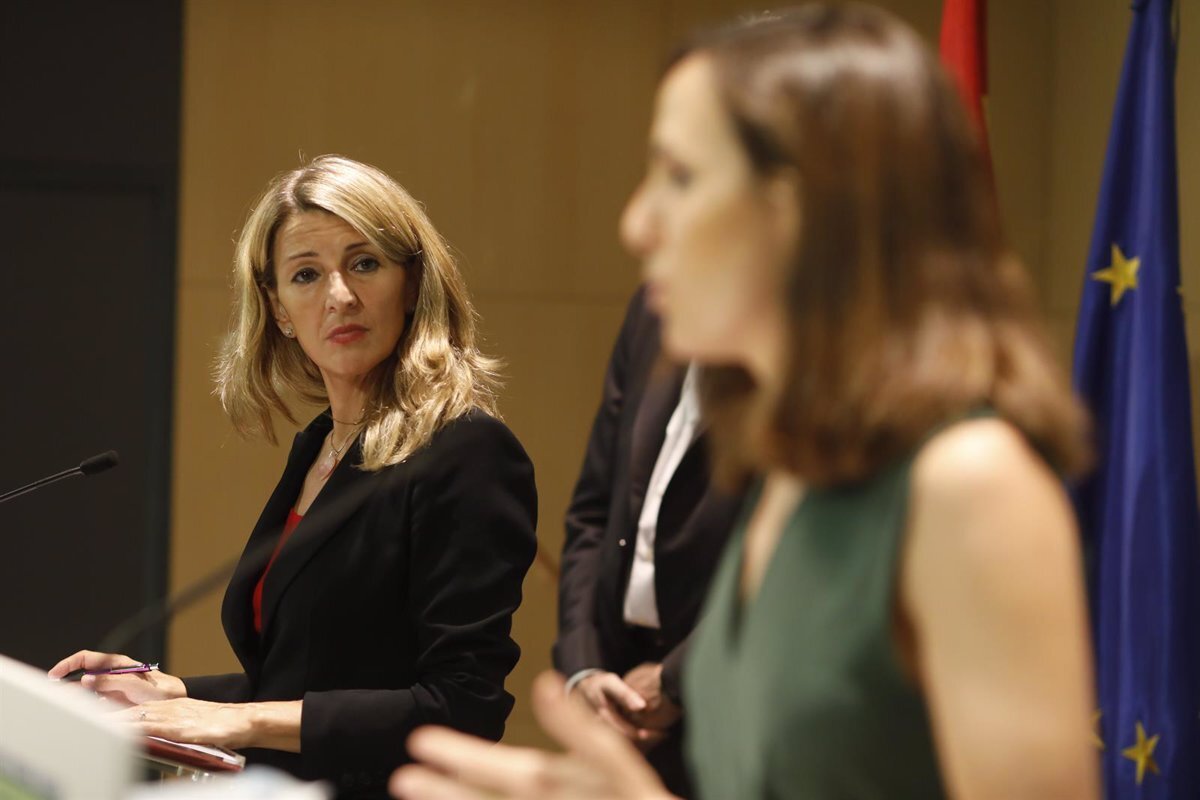Signed, sealed, and delivered. The coalition between Podemos and Sumar has been a reality since eight in the evening this Friday. The agreement by the two left-wing political forces to present themselves jointly at Spain's snap general election on July 23rd has been made in the nick of time, with just hours to spare before the closing of registrations for coalitions intending to stand in the elections called by Pedro Sánchez for July. With this Friday's agreement, Sumar will present itself to the electorate as a platform that groups together Podemos, Izquierda Unida, the Comuns, Compromís, Más Madrid, Verds Equo, Chunta Aragonesista, Drago Canarias and MÉS per Mallorca, among others.
Thus, Yolanda Díaz has got her wish: to swallow Podemos and become the leader of the Spanish political space to the left of the Socialists (PSOE) leading her own brand. The current Spanish second deputy prime minister will even have her face shown on the 23rd July ballots, in a strategy by her platform to flaunt her hyper-leadership. The issue of leadership has, in fact, been one of the biggest difficulties that the parties have had in reaching an agreement. And, indeed, this aspect will still need to be resolved in the next few days, since the parties have until June 19th to definitively present the candidature lists for the July election date.
The main veto imposed by Yolanda Díaz has a very clear name and identity: that of the current minister of equality, Irene Montero. The general secretary of Podemos, Ione Belarra, wanted to cool down the situation and this afternoon made it clear that, whatever happened, her party guaranteed that it would end up signing an agreement with Sumar. However, she asked Yolanda Díaz for a gesture of solidarity, and not to decapitate the party, since Montero is, without a doubt, the most visible face of the Spanish party which has led the alternative left since 2015. Similarly, she insisted that Podemos members need to have more presence in the lists.
In a video statement, Belarra affirmed that her party ran the risk of being left without parliamentary representation. However, Podemos will in the end have 15 places on the lists: one for Navarra, one for Guipúzcoa, one for Cádiz, one for Murcia, one for the Balearic Islands, one for Álava, five for Madrid and four for Barcelona. If this political space achieves a result equivalent to the previous elections on July 23rd, this means that Podemos will place eight of these fifteen candidates in the Congress of Deputies.
Those who are most satisfied with the negotiations with Yolanda Díaz are the members of Íñigo Errejón's party, Más País. In its Más Madrid heartland, the party will occupy the third, fourth, seventh and tenth places on the list for the Spanish capital. In fact, Errejón himself will occupy fourth place on the list. The fifth place will go to Podemos. And the ninth for Izquierda Unida. Spain's second deputy PM will head the list for Madrid.
Sumar: "We are the plurality of the country"
Minutes after presenting the final agreement between Sumar and Podemos to the Electoral Commission, Yolanda Díaz's party issued a statement in which it boasts of having achieved "the broadest and most plural agreement achieved in the entire democratic era in Spain between progressive and green forces". "The plurality of Sumar is the plurality of the country and we want to make this an identitary sign of this electoral coalition, which is the main option for progressive citizens to regain hope", they add.

